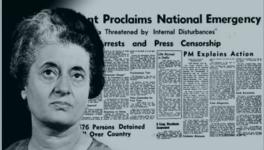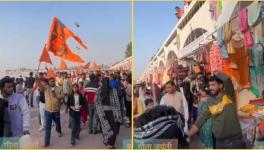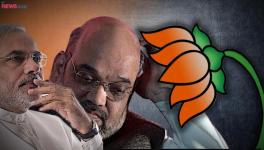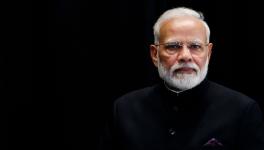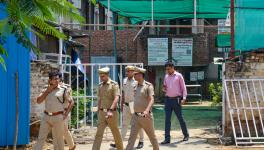Why Does the Secular Indian State Discourage Inter-Religious Marriages?
Preeti started reading in detail the Special Marriage Act after she was engaged to marry her boyfriend Javed. She knew about the Act before, but hadn’t studied its contents closely until then. When she reached the part on the application for registration of marriage under the Act, she found “bizarre things” in it.“There is a part that requires you to state that you are not an idiot,” said Preeti, a teaching professional in Mumbai.
Preeti and Javed filed a ‘Notice of Intended Marriage’ at an office of a Sub-Divisional Magistrate (SDM) in Nagpur where Preeti’s parents lived. The SDM there was suspicious about the couple from the start, but the absence of Javed's parents at the time of the filing of the notice made him further suspicious. “He asked my fiancé if he was running away from his house,” Preeti said. Also, an error made by the lawyer they had hired to fill out their form cost them dearly. “Now the SDM wasn’t interested in pushing the marriage. He was very reluctant from the start.”
Religious prejudices of marriage officers and the glitches in the Special Marriage Act make it hard for couples in inter-religious relationships to marry under the Act that intends to facilitate such marriages without religious conversion.
The Special Marriage Act 1954 was drafted to provide a space for couples from different religions, castes, races, nationalities, and Indian couples living outside of India to solemnize and register their marriage. It replaced the 1872 British Act of the same name, and came into effect on January 1, 1955.
In its simplest form, the process of marrying under the Special Marriage Act looks like this: A couple files a ‘Notice of Intended Marriage’ with the SDM in whose jurisdiction either the man or the woman has lived for at least 30 days. Then, they both file an affidavit. A copy of the notice is put up on the public notice board at the SDM’s office for 30 days. Anybody objecting to their marriage on the grounds specified in the Act (prohibited relationships, underage, insanity, and a living spouse) can file an objection within the 30-day time period. If there is no objection or if an objection is overruled, the SDM solemnizes the marriage on a chosen date in the presence of three witnesses.
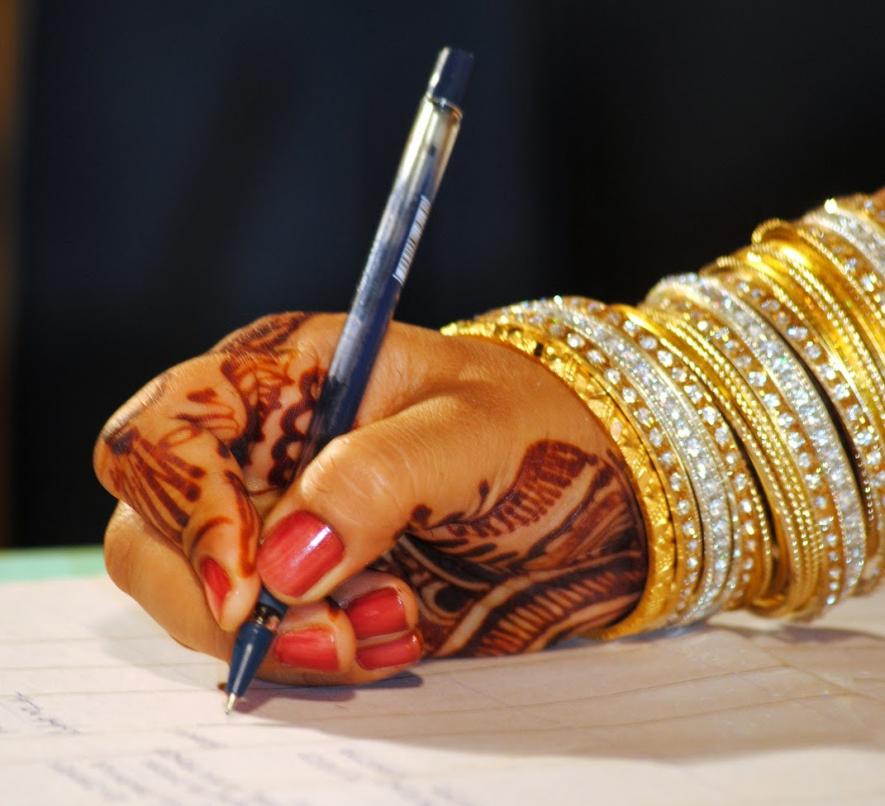
Image via http://easylaw-matrimonial-law-india.blogspot.in
However, the simpler the process sounds on paper, the more daunting it is in reality.
Co-founder and Convener of "Dhanak" (a group of inter-faith/castes couples), Asif Iqbal, said that the SDMs often doubt the intentions of the couples and discourage them from marrying under the Special Marriage Act. Section 5 of this Act that requires one of the parties to have resided in the area for 30 days is a hurdle for couples who elope from their town or city to get married in another. They have no choice of an immediate marriage under the Act.
“The law says that one person needs to have an evidence of a 30-day stay in the area, but they ask for evidence for both people,” Asif Iqbal said. “Rent agreement or a phone bill could work as a proof of residence; but the SDMs demand a voter’s id for proof. There is another way to get residential proof, and that is by police verification. But the SDMs do not inform the couples about it,” he added.
Some SDMs have been whimsically dispatching letters to the parents of couples who file a notice of intended marriage, although the law doesn't require them to do so. Addressing this matter, the Delhi High Court in 2009 ordered the marriage officers to refrain from dispatching such letters to the parents as it is a breach of the right to privacy of the couples.
Out of their personal bigotry and prejudice, SDMs often suggest inter-religious couples to marry under personal laws instead of the Special Marriage Act. The major personal laws on marriage in India such as the Hindu Marriage Act enacted in 1955 and the Muslim Personal Law (Shariat) Application Act of 1937 require both people to belong to the religion under whose personal law they seek to marry. Thus, one or both persons need to convert.
Under the Special Marriage Act, putting up a copy of the notice on the display board for 30 days gives a chance to parents to find out, intervene and break the alliance. Even worse, it attracts harassment of the couples from radical religious groups who object to the marriage. In Faridabad, a couple intending to get married under the Special Marriage Act is required to publish a notice about the same in a newspaper. With terms and conditions like these, it seems the state allows radical religious groups a free run in interfering in personal matters of young couples and intimidating them.
This practice of publicly displaying a copy of the notice has been carried on from the previous British legislation. It appears that the practice has been derived from the British custom of 'calling the banns' in which an announcement is made on three successive Sundays before a marriage at the church. This British hangover has troubled inter-religious couples as frivolous and false objections delay and sometimes abort solemnization of the marriage.
The much promoted secular character of the Indian state turns out to be a complete hogwash in the case of the Special Marriage Act, like in several other cases, as the state itself restricts intermixing of different communities. Some provisions in the Act suggest that the state was ambivalent about allowing inter-religious marriages without making the couples pay for it. For instance, Section 19 of the Special Marriage Act states that “the marriage solemnized under this Act of any member of an undivided family who professes the Hindu, Buddhist, Sikh or Jain religion shall be deemed to effect his severance from such family.”
According to Section 21 of the Act," ... succession to the property of any person whose marriage is solemnized under this Act and to the property of the issue of such marriage shall be regulated by the provisions of the said Act (Indian Succession Act, 1925) ..." However, an amendment made to this Section reads "Where the marriage is solemnized under this Act of any person who professes the Hindu, Buddhist, Sikh or Jain religion with a person who professes the Hindu, Buddhish, Sikh or Jain religion, Secs. 19 and 21 shall not apply."
Thus, the Act clearly says that a Hindu* marrying under the said Act shall cut off ties from his/her family only when he/she marries a non-Hindu. The Act also states that succession to property of any Hindu* who marries a non-Hindu will be regulated by the provisions of the Indian Succession Act of 1925, and not by the provisions of the Hindu Succession Act of 1956. This means that ancestral property which is an heir’s right under the Hindu Succession Act (unlike in the Indian Succession Act) ceases to be a right once the heir marries a non-Hindu. Similarly, succession to property of two non-Hindus (for instance, two Muslims) marrying each other under the Special Marriage Act shall be governed under the Indian Succession Act of 1925, and not under their personal laws.
The Act suggests that the only case where a person can enjoy the benefits of his/her personal succession laws even after marrying under the Special Marriage Act is when he/she is a Hindu* married to a Hindu*. By bringing in such an amendment, the Act clearly implies a strong bias of the state against inter-religious and non-Hindu couples.
After a failed attempt in Nagpur, Preeti and Javed decided to apply in Mumbai where they both studied. A relative of Javed, who was a judge in a District Court in Mumbai, had called up the SDM at whose office Preeti and Javed had applied, and asked him to carry through the process without unnecessary delays. The relative also commanded the SDM to pin up the copy of their notice on the board in a way that doesn’t attract much attention.
Even as most inter-religious relationships face disapproval from families, Preeti and Javed got married with support from theirs. “What is shocking is how the state makes it hard for inter-religious couples to get married,” Preeti said.
*Hindu here is meant to include Hindu, Sikh, Buddhist and Jain.
(Names have been changed to protect identity)
Disclaimer: The views expressed here are the author's personal views, and do not necessarily represent the views of Newsclick.
Get the latest reports & analysis with people's perspective on Protests, movements & deep analytical videos, discussions of the current affairs in your Telegram app. Subscribe to NewsClick's Telegram channel & get Real-Time updates on stories, as they get published on our website.










